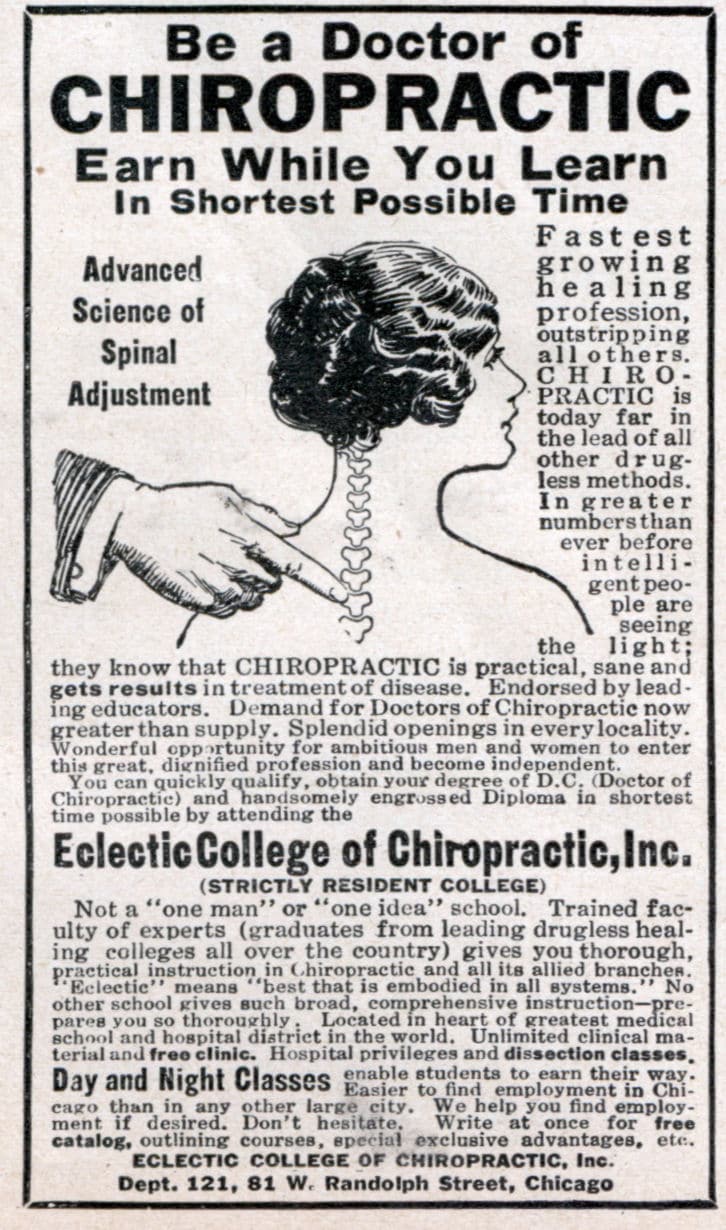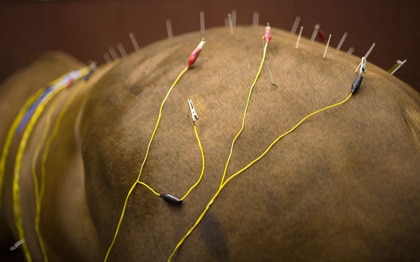My (apparently somewhat controversial) philosophy about taking care of horses is that we should do things for them that are necessary and helpful, and avoid things that are not necessary: especially those things that are harmful. I think that we should give horses liberal doses of time and attention (it’s good for horse AND human), but that doesn’t include wasting time and money on medical treatments that haven’t been shown to do anything. I believe that, to the extent possible, we should choose treatments for our horses based on what has been proven to be true, and not just on what we think or hope is true. And I also believe that people selling things to other people have an ethical obligation to provide objective proof that what they say is true, is true.
So, when I write about the numerous implausible treatments, supplements, etc. that are out there for horse owners – some of which go well beyond the implausible, to the ridiculous – I often get (sometimes quite heated) responses from people who tell me that I should keep an “open mind” about them. “After all,” the responses go, “We don’t know everything,” the implication being that since we don’t know everything, what they’re saying could possibly be true.
 ASIDE: Actually, you’d think that when I say, “You know, there’s no much evidence for [you fill in the blank]” that people would say, “Thank you.” And, in fact, many do. And, if something lacked evidence, you’d think they might say, “That’s a good point, we need to go about getting good evidence.” Instead, when the lack of evidence for a practice gets mentioned, people usually mention all sorts of experiences and anecdotes. Those are fine, but they’re not strong evidence for lots of reasons (CLICK HERE to read about some of them). Anecdotes don’t mean that it’s impossible that a treatment worked, of course, but science asks for more. I just don’t think that medical treatments should be sold using the same approach as is used for face cream or hand spot remover.
ASIDE: Actually, you’d think that when I say, “You know, there’s no much evidence for [you fill in the blank]” that people would say, “Thank you.” And, in fact, many do. And, if something lacked evidence, you’d think they might say, “That’s a good point, we need to go about getting good evidence.” Instead, when the lack of evidence for a practice gets mentioned, people usually mention all sorts of experiences and anecdotes. Those are fine, but they’re not strong evidence for lots of reasons (CLICK HERE to read about some of them). Anecdotes don’t mean that it’s impossible that a treatment worked, of course, but science asks for more. I just don’t think that medical treatments should be sold using the same approach as is used for face cream or hand spot remover.
 Anyway, the “You should keep an open mind” criticism strikes me as kind of funny, because I generally think of myself as being pretty extraordinarily open to new ideas. For example, my wife once suggested that I go with her to a yoga class – I did, and loved it. I once saw congee on a menu at a hotel. I had never heard of it, (it’s a very typical meal in China and other Asian countries), I therefore had to try it, loved it, and now I make it at home (CLICK HERE for the recipe – it’s so easy. BTW, I usually substitute no fat, low sodium, chicken broth for water, throw in some chunks of ginger root as it’s cooking, and serve it with sides of shredded chicken, green onions, and dry roasted peanuts). I am very open to trying new things: especially when they are delicious.
Anyway, the “You should keep an open mind” criticism strikes me as kind of funny, because I generally think of myself as being pretty extraordinarily open to new ideas. For example, my wife once suggested that I go with her to a yoga class – I did, and loved it. I once saw congee on a menu at a hotel. I had never heard of it, (it’s a very typical meal in China and other Asian countries), I therefore had to try it, loved it, and now I make it at home (CLICK HERE for the recipe – it’s so easy. BTW, I usually substitute no fat, low sodium, chicken broth for water, throw in some chunks of ginger root as it’s cooking, and serve it with sides of shredded chicken, green onions, and dry roasted peanuts). I am very open to trying new things: especially when they are delicious.
But back to the “open mind” thing. A mind that’s always “open” has no way to decide between contradictory ideas, and no way to prove that a treatment doesn’t work at all. If you only keep an open mind, you don’t have any way to come up with a definite conclusion. It doesn’t do anyone any good to have a mind that is so open that the brain falls out.
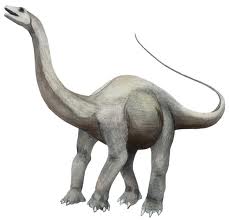 Here’s an example. Let’s say you come running up to my door, and tell me that an apatosaurus is walking down the street. My initial response would be, “Oh, right,” and especially so since the last apatosaurus walked the earth something like 150 million years ago (which is possibly even before acupuncture was supposedly invented).
Here’s an example. Let’s say you come running up to my door, and tell me that an apatosaurus is walking down the street. My initial response would be, “Oh, right,” and especially so since the last apatosaurus walked the earth something like 150 million years ago (which is possibly even before acupuncture was supposedly invented).
While I might want to keep an open mind to the possibility that a 50 thousand pound sauropod might be strolling down the street, I’d probably also say something like, “You didn’t happen to get a video or a photo of the big guy, did you?” I mean, as open-minded as I am, the chance encounter with a dinosaur walking down the street might have been worth a photo, right? In this case, being “open-minded” enough to accept the claim at face value would be more than just a little silly.
 In medicine, people make silly claims all the time (maybe no as obviously silly as the apatosaurus sighting example, but silly nonetheless). And when people make implausible medical claims, I think it’s important to ask for objective proof. Asking for objective proof doesn’t mean that the therapies are necessarily worthless – but if they go against a lot of stuff that people already know, it doesn’t make any sense to just keep an open mind about them.
In medicine, people make silly claims all the time (maybe no as obviously silly as the apatosaurus sighting example, but silly nonetheless). And when people make implausible medical claims, I think it’s important to ask for objective proof. Asking for objective proof doesn’t mean that the therapies are necessarily worthless – but if they go against a lot of stuff that people already know, it doesn’t make any sense to just keep an open mind about them.
Keeping an “open mind” is a vacuous criticism. It doesn’t really require any effort. In fact, I think that “keeping an open mind” is really just a cover for mental laziness. Over 2000 years ago, the Greek philosopher Aristotle said, “It is the mark of an educated mind to be able to entertain a thought without accepting it.” It’s not that hard to show that something has a real effect – it just takes a good bit of work. The best way to support a claim is to provide real evidence for it.
Of course, a “closed mind,” a mind that isn’t open to new ideas, isn’t a good thing at all. It’s an intellectual dead end. I’m totally against that. But a perpetually open mind is a dead end, too. The “open” mind essentially asserts that no knowledge is possible (except that one should be keep an “open” mind). The closed mind doesn’t accept anything – but the open mind accepts the possibility of everything. So, in fact, neither a constantly “open” or a perpetually “closed” mind is a good thing. Neither requires that ideas be critically examined.
 We’ve learned a lot of things over time, and while we may not know everything, we have, over the past few thousands years, managed to come up with a good bit of knowledge (and we keep adding to it). So when implausible ideas come along – and especially if they contradict a lot of what has been already established – I think some objective backup is in order. That’s where science comes in.
We’ve learned a lot of things over time, and while we may not know everything, we have, over the past few thousands years, managed to come up with a good bit of knowledge (and we keep adding to it). So when implausible ideas come along – and especially if they contradict a lot of what has been already established – I think some objective backup is in order. That’s where science comes in.
Science is VERY open to new hypotheses, suppositions, and ideas. New ideas are interesting, and they spur progress. But once you go past the new idea, I think it’s important that there’s some support for the theory being proposed beyond, “It works for me!” or, “I’ve been very happy with it.” Without scientific support, all you end up with is, “I have a great idea,” followed by, “I agree, it’s a great idea,” kept going by, “Wow this is a great idea!” But there’s nothing more.
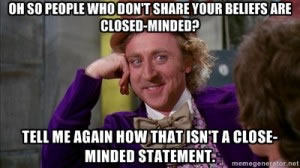 In truth, I am closed-minded about one thing. I’m closed-minded to other other approaches to evaluating medical therapies besides sound, scientific methods. Oh, sure, there are other methods (CLICK HERE to read my article, “But It Works for Me”). But in the past six or seven decades – that’s all the time that people have really used scientific methods – when it comes to finding out if things really work, it’s proven a superior method to anything else.
In truth, I am closed-minded about one thing. I’m closed-minded to other other approaches to evaluating medical therapies besides sound, scientific methods. Oh, sure, there are other methods (CLICK HERE to read my article, “But It Works for Me”). But in the past six or seven decades – that’s all the time that people have really used scientific methods – when it comes to finding out if things really work, it’s proven a superior method to anything else.
Happily, there’s an alternative to a mind that is perpetually open, or one that is shut down and closed. The alternative an active, objective mind. An objective mind is both open and closed. It’s open to facts, to good 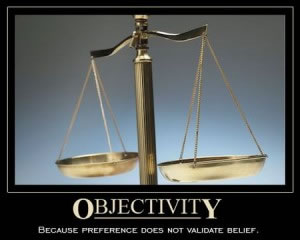 evidence, and logic. It is open to the use of reason. But especially when it comes evaluating medicines, and medical treatments, an active, objective mind is also closed: closed to things like feelings, beliefs, blind faith, hunches, and cultural tradition. An active, objective mind simply asks for objective proof. It’s really not reasonable to “keep an open mind” about something that’s implausible, or for which there isn’t good evidence. An open, objective mind will critically look at the claims being made for a treatment, and see how they match up with reality, and with what’s known. An open, objective mind gives priority to facts over feelings.
evidence, and logic. It is open to the use of reason. But especially when it comes evaluating medicines, and medical treatments, an active, objective mind is also closed: closed to things like feelings, beliefs, blind faith, hunches, and cultural tradition. An active, objective mind simply asks for objective proof. It’s really not reasonable to “keep an open mind” about something that’s implausible, or for which there isn’t good evidence. An open, objective mind will critically look at the claims being made for a treatment, and see how they match up with reality, and with what’s known. An open, objective mind gives priority to facts over feelings.
It’s a fact is that something can’t both work and not work at the same time. Somebody has to be right. So, for example, I understand that there are people that strongly feel that acupuncture is an effective treatment for their horses – I consider some of them my friends. But in my 30+ years of experience, I’ve never seen a horse helped by acupuncture (and I’ve seen many treated with it). I respect your experience – I’m hoping that you respect mine. But the question is – assuming that it’s important to figure out if acupuncture really does anything (and I think it is important) – “How do we figure it out?”
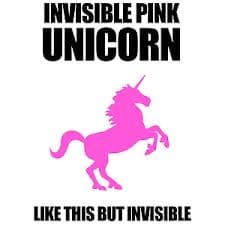 There’s one other statement that you’ll hear from people who advance “open minds” and implausible treatments. “The absence of evidence isn’t evidence of absence.” What they are trying to say is, “Just because we don’t have any evidence now doesn’t mean that there won’t be any evidence at some point in time.” While that’s strictly true, the phrase “absence of evidence” is, in fact, real evidence. It is the evidence of a failure to find consistent effects of a treatment. In fact, if evidence supporting a treatment or procedure doesn’t fairly accumulate fairly quickly, the most likely reason for that failure is that the treatment or procedure doesn’t really do anything.
There’s one other statement that you’ll hear from people who advance “open minds” and implausible treatments. “The absence of evidence isn’t evidence of absence.” What they are trying to say is, “Just because we don’t have any evidence now doesn’t mean that there won’t be any evidence at some point in time.” While that’s strictly true, the phrase “absence of evidence” is, in fact, real evidence. It is the evidence of a failure to find consistent effects of a treatment. In fact, if evidence supporting a treatment or procedure doesn’t fairly accumulate fairly quickly, the most likely reason for that failure is that the treatment or procedure doesn’t really do anything.
In reality, all a perpetually “open mind” does is close the mind to facts in order to hold on to current beliefs. Keeping a perpetually “open mind” is really just a way to deny that absolute knowledge exists. Telling someone to keep an “open mind” isn’t telling them to look for the truth, rather, it’s used as a way to excuse the lack of evidence. The person advocating an “open mind” does not say, “Be open to this position, because of the evidence supporting it,” rather, the person says, “Be open to this position, regardless of the evidence.”
Don’t fall for the “open mind” trap. Heaven forbid you state a controversial opinion – like I seem to do, with some regularity – you might be labeled “closed-minded.” But try not to have either. Instead, ask questions, and have an active, objective mind. It’ll serve you (and your horse) well.





